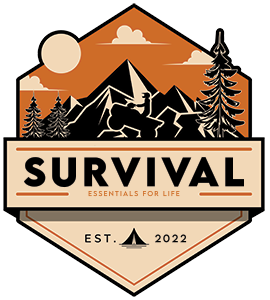In disaster preparedness circles, one of the often-overlooked aspects of emergency preparation is the ability to grow your own food. This idea has grown extremely popular lately due to the plethora of companies catering to preppers and homesteaders and their foreseen need to grow their fruits and vegetables. These kits have boomed in availability, from smaller kit-makers on Amazon to huge companies offering seed buckets alongside their bug-out bags and generators.
Which kit is the right choice, though? Some have labels boldly proclaiming “GMO-FREE” and “ALL HEIRLOOM SEEDS,” but very little in the way of germination instructions or best-practice advice. We will look at four different kits and what they offer and give a balanced pro and cons list for each to help you make your decision.
Sustainable seed company
22,000 Seed Survival Kit – $35-$40
With over 1,500 positive reviews on Amazon, this seed kit is a hit, full of GMO-Free, Heirloom seeds packaged to last between five and seven years on the shelf.
Pros:
- BOB (bug out bag) comes with 34 varieties of heirloom fruit vegetable seeds.
- Includes a 75-page growing guide and 15 pages of information on soil types, fertilization, and planting.
Cons:
- While many reviews laud a 100% germination rate, significant others describe their frustration in sprouting the seeds.
- Inconsistencies with packaging quality may make long-term storage of the seeds difficult or impossible.
My Patriot Supply
Survival Seed Vault – $35-$40
My Patriot Supply’s Seed Vault comes in a cylinder tin for freshness and advertises 100% Heirloom, GMO-Free Seeds.
Pros:
- Easily sealed container is airtight and unopened; seeds can be stored indefinitely.
- Comes with a wide array of seeds for enjoyment and variety in your survival food.
Cons:
- Germination rate reportedly drops with every year the seed packets are opened, beginning at 90-100% the first year and dropping to 50-60% by the second.
- The varieties included require plenty of growing space and aren’t particularly calorie-dense choices, meaning more work for growth and less value.
- Reported quality assurance issues; some customers stated they were missing seeds.
Survival essentials
100+ Variety Seed Bank with Bonus Microgreens Kit – $90-$100
This kit contains over 17,000 seeds in a bug-out-friendly cardboard box. Advertised to carry seeds for all hardiness zones, this kit features vegetables, fruits, and medicinal herbs for every need.
Pros:
- Expert-consulted preservation methods included in the kit and implemented in packet design.
- Includes a fast-growing microgreens kit for added nutritional value.
- Wide varieties of heirloom seeds to suit every gardener’s diet.
Cons:
- Considerably more expensive than other emergency seed kits.
- Reports of diseased species of vegetables sold.
- Several reports of packets producing no sprouts.
Open Seed Vault
Survival Seed Garden – $16-$35
A top seller on Amazon in Survival Seeds, Open Seed Vault packs a mighty punch in a small pouch. This pack has 15,000 seeds in 32 heirloom varieties of fruits and vegetables, including difficult-to-find seeds like brussel sprouts and cauliflower.
Pros:
- All the seeds included mature within 100 days, making them perfect for Northern and Southern gardens.
- The resealable mylar pouch is like freeze-dried food pouches, meaning shelf life unopened can be 15-20 years!
- A pamphlet inside details germination and fertilization, giving beginner gardeners an easy-to-use guide.
Cons:
- There isn’t an even spread of seeds per variety. High-value grains like corn are in smaller numbers than leafy greens like celery.
- The varieties leave a lot to be desired, as they’re all fresh-eating varieties rather than canning or preserving vegetables.
- Peat pellets are included in the pack, which can cause issues for beginner gardeners unaccustomed to pellet-starting.
